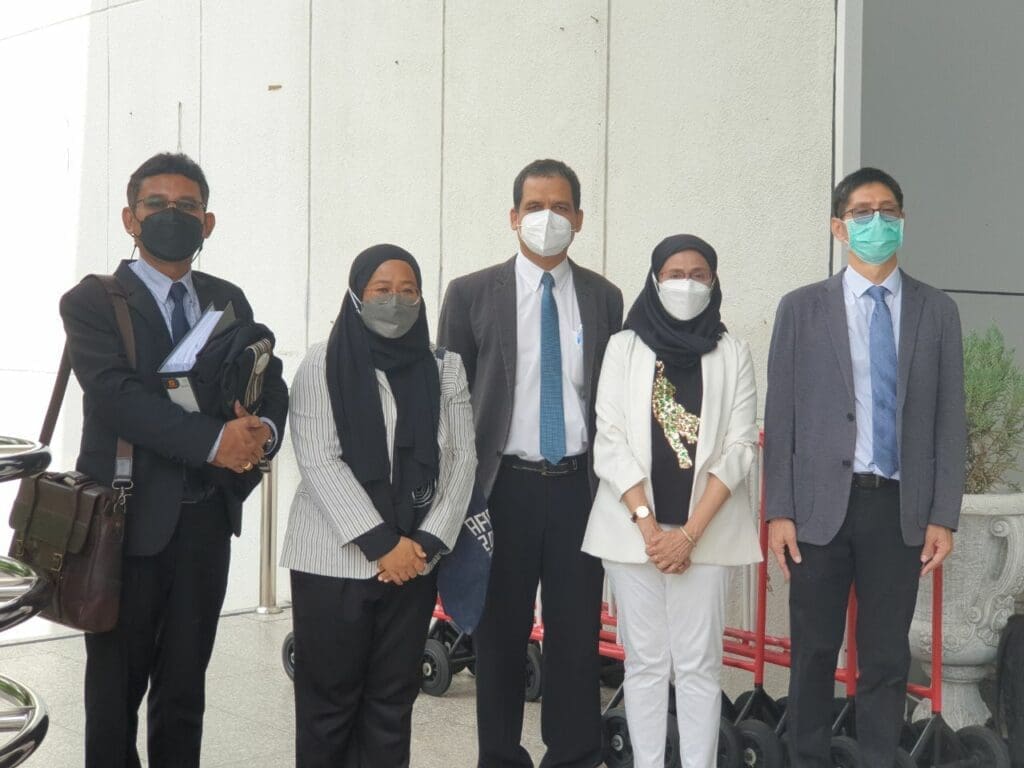On 10 and 11 May 2022, the Bangkok Civil Court held the first hearing for the case that human rights defenders Angkhana Neelapaijit and Anchana Heemina filed against Thailand’s Office of the Prime Minister and the Royal Army. During the witness examination, Neelapaijit and several other witnesses gave evidence to prove that government officials have been perpetuating disinformation campaigns against the women human rights defenders (WHRDs). Neelapaijit and another expert witness from the southern region aim to prove that the Royal Army and the Office of the Prime Minister in charge of the Internal Security Operations Command (ISOC) were involved in an extensive online defamation network. The witnesses were about to testify in front of the court on 17 May 2020, but the hearing had to be rescheduled to 26 August 2022 due to a public prosecutor being ill. Neelapaijit and Heemina, the two WHRDs who filed the complaint in November 2020, were hoping to conclude this month as the hearing has been delayed several times already due to COVID-19.
Sanya Eadchongdee, the human rights lawyer filing the suit with the two women, has high hopes for the outcome of the trial. The government’s wrongdoings have been exposed since 2017, and that same year Neelapaijit reported the case to the Thai Technology Crime Suppression Division (TCSD). No punitive measures have been taken so far. Eadchongdee hopes that this court case will serve as an example for future generations on how disinformation campaigns against human rights defenders (HRDs) are not acceptable.
“This verdict will set a historical record and remind people that these situations need to be addressed. We have been able to take the state officials to court and expose them, as well as to warn them against doing this to people. Officials are not allowed to use public money to conduct disinformation operations against their citizens, especially human rights defenders. It is a violation of international standards”.
At the time of the first hearing, the army denied it implication in the disinformation campaigns, stating that only the ISOC was involved. However, Eadchongdee and the other attorneys have built up evidence to prove that both have been involved and that the state needs to be held accountable.
In August 2022, a key witness coming from the Southern Border Province, who has been watching the unconventional movements of the blogs containing false information, will be able to expose the active networks and how they operated with support from the army. This witness will provide evidence that a large network of informants is active in the region, with their actions compounded by several official ministers, and they are using funds going up to tens of billions of baht to carry out these defamation campaigns.
The case’s evidentiary foundation rests on the speech from opposition party leader Wiroj Lakkhanaadisorn, where he establishes that information operations have been actively perpetuated by the State. During a 2020 parliamentary debate, he exposed the information operations that have been spreading disinformation about HRDs. Further details on the ISOC’s operations in the Southern Border Province were revealed through the budget. Documents released concerning internal security operations and financial information from the Ad-Hoc Committee on the Annual Budget brought to light the fact that agencies under ISOC have been supporting a whole network of officials engaging in such illicit activities.
Neelapaijit and Heemina decided to file the suit to protect HRDs in Thailand and to prevent such violations from happening again. Both women sued the authorities for the violation of the “Liability for Wrongful Act of Officials Act B.E. 2539 (1996)” and are demanding reparations of up to three million baht each. Neelapaijit says she is not focused on the outcome of the trial, but rather, that what matters to her is that this trial will set an example for the future. As the facts have been exposed to the public, in either case, it will further improve the protection of HRDs who are still the target of smear actions by the State. They are hopeful this case will push the state to adopt more adequate protection measures to prevent those mischievous practices from occurring again.


